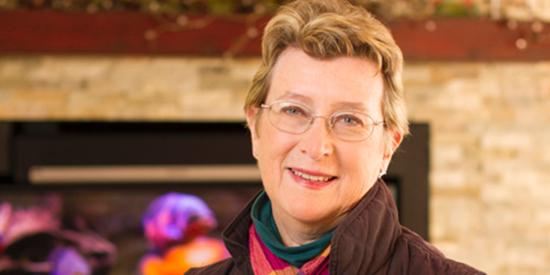On the road to better health care

By Maura Sullivan Hill
Nancy S. Hardt (MD ’77) was a new mother practicing high-risk obstetrics when a patient told her, “You have everything I could ever want: two healthy children.” Hardt never forgot that patient and the many like her whose lack of access to health care threatens the lives and well-being of their children.
As a professor of pathology and obstetrics and gynecology at the University of Florida College of Medicine, she directed the Health Disparities and Service Learning Programs and also created an undergraduate minor called Health Disparities in Society. As a citizen of Alachua County, she took it upon herself to develop a “health report card” for the county. She found that certain rural, poor areas weren’t getting top marks, but rather, showed high instances of domestic violence, food deserts, poor school performance, child abuse and neglect, and a lack of access to health care.
Once she had this data, Hardt shared it widely within her community, which prompted organizations from the county library system to the police to take action. They created a community resource center to provide basic needs like food, clothing, and shelter, and also collaborated on programming about coping with stress and reducing domestic violence.
Hardt, in collaboration with the University of Florida, spearheaded the health care response, creating a mobile outreach clinic that visits eights at-risk neighborhoods to provide medical care free of charge. Now retired, she doesn’t get out on the bus as much as she used to, but the clinic rolls out four days per week and three evenings per week, providing care to those without health insurance or Medicaid in the county. Visitors come to the clinic looking for family planning advice, treatment for injuries from domestic violence, HIV counseling and screening, and more.
In light of the current opioid addiction crisis, the clinic doesn’t prescribe oxycodone. Instead, they turn to alternative methods to help patients cope with pain. A massage therapist and acupuncturist are among the many volunteers who staff the clinic, including doctors, nurses, nurse practitioners, physician assistants, medical students, and even University of Florida undergraduates who are interested in the medical field.
“We accepted all offers of assistance and, once people saw the maps and data, they wanted to do what they could,” said Hardt. “They all saw the need and wanted to help.”
In the mobile outreach clinic’s seven years of operation, these volunteers have provided more than 28,000 free health care visits—and the impact shows. Child abuse cases are down 67 percent since the mobile clinic and other initiatives launched, and there was a reduction in unintended pregnancy, births with shortened interpregnancy interval, premature births, and infant mortality.
Last September, Hardt was invited to share Alachua County’s tactics with the United Nations at the High-Level Forum on the Culture of Peace, in the hopes that other countries around the world can learn from and adapt some of their successes.
“These positive changes are directly attributable to the mobile clinic, because Florida chose not to expand Medicaid. If we had expanded Medicaid, then most of the patients that come to the bus would have access to a regular doctor or clinic, and we would just be taking care of undocumented immigrants and migrant workers,” Hardt said. “But we take care of everybody. The reputation around town is that this is a safe space to come and tell what’s really going on, and we take care of them the best we can.”
